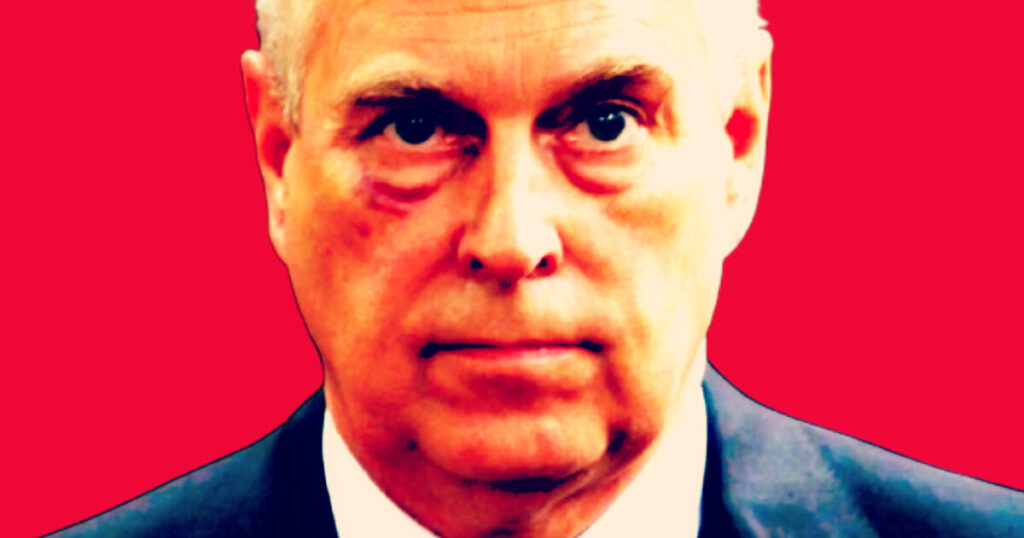Andrew Lownie, a seasoned biographer of the British royal family, is set to provide new insights into the beleaguered figure of Prince Andrew in his forthcoming biography, “Entitled: The Controversial Lives of the Duke and Duchess of York.” A central theme of this work is Andrew’s complicated and tarnished legacy following serious allegations of sexual misconduct. His reputation suffered a significant blow after he settled a lawsuit filed by Virginia Giuffre, who accused him of sexual assault, reportedly for millions of pounds. The fallout from this scandal has left him marginalized within the royal family, often referred to as “the Firm,” and Lownie suggests that Andrew’s future may lie beyond the borders of the UK, hinting at a possible relocation to the Middle East where he has found welcome arms.
In Lownie’s revelations, it is reported that discreet support is still available to Prince Andrew, pointing to his ongoing association with wealthy elites in the Abu Dhabi, exemplified by access to a palace gifted to him by the ruling family. This connection seems to allow him a degree of refuge from the ostracism he faces in Britain, where King Charles III has reportedly barred Andrew from participating in family gatherings, including Christmas. Prince Andrew previously served as a trade ambassador for Britain and maintained connections that have provided him with significant privileges and comforts overseas, particularly in the UAE. Given the current political climate, his ties and the patronage he receives suggest that his lifestyle could be sustained through these alternative networks while he reconciles his troubled past.
Andrew’s relationships play a pivotal role in his narrative, especially a controversial partnership that has drawn scrutiny due to allegations of espionage concerning a Chinese business associate, Yang Tengbo. This relationship raises serious questions about Andrew’s judgment and associations, particularly in light of his past position and the implications of being close to someone suspected of espionage. Public and familial backlash has underscored the precarious position in which he finds himself, further isolating him from royal duties and support. Lownie points out that materials found in Yang’s possession indicated an opportunistic view of Andrew, framing him as desperate and in need of financial and social connections, which could lead to unfounded scandals.
The implications of Prince Andrew’s private dealings and conduct are profound, impacting not only his personal legacy but also the institution of the monarchy itself. As the biography unfolds, Lownie suggests that there is a broader narrative at play regarding the shifting dynamics of the royal family in the wake of high-profile scandals and public relations crises. The monarchy’s response, including the excommunication of Andrew from family events, reflects an ongoing effort to distance the institution from controversies that threaten its stability. This signals a more significant generational shift within the royal family, where public perception and the need for reputation management have become increasingly critical.
With his relocation to the Middle East seemingly on the horizon, Andrew’s choice to split time between the UAE and the UK underscores both a search for solace and a strategic reorientation of his life in light of the mounting pressures he faces at home. The appeal of a luxurious lifestyle, paired with favorable conditions in a region that still affords him a degree of respect, presents an interesting juxtaposition against his status in Britain, where he is viewed with skepticism and disdain. The lavish amenities and the ability to navigate business dealings privately in the UAE may provide him with avenues to rehabilitate his image while keeping a low profile.
In conclusion, Andrew Lownie’s biography promises to shed light on the multifaceted and controversial life of Prince Andrew, capturing the nuances of his relationships and the consequences of his actions. Through detailed research, Lownie explores the ramifications of Andrew’s decisions and connections, illustrating a man caught between the enduring allure of royal status and the reality of public scrutiny. As Andrew navigates his future, potentially away from the UK and within the embrace of foreign dignitaries and opulence, the implications for his identity as a prince and as an individual remain significant. The story of Prince Andrew serves as a potent reminder of the fragility of reputation and the evolving nature of the institutions that support it, all against a backdrop of historical legacy and contemporary challenges.

